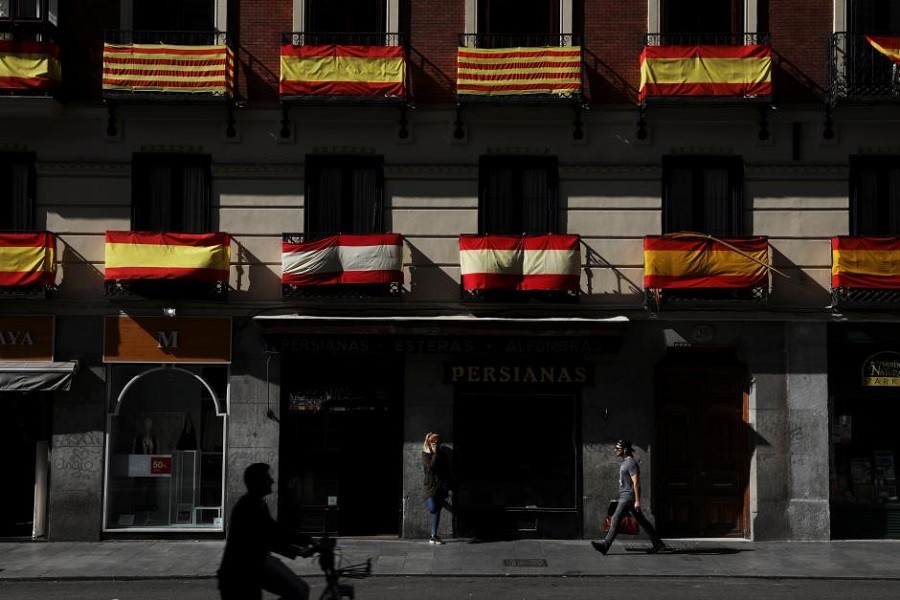The Spanish cabinet is expected to approve measures allowing the government to impose direct rule over Catalonia.
Prime Minister Mariano Rajoy meets with his cabinet almost three weeks after the region held a referendum.
The Spanish government says the vote was illegal, but Catalan leader Carles Puigdemont says he has been given a mandate to declare independence.
As a result, the central government is preparing to take back power.
It is expected to trigger Article 155 of the constitution, which allows it to impose direct rule in a crisis, taking back a region's devolved powers, for the first time.
Other moves may include taking control of Catalonia's regional police force.
However, Article 155 does not give the government the power to fully suspend autonomy.
The country has been in crisis since the vote was held on 1 October.
Of the 43 per cent of Catalans who reportedly voted, 90 per cent were in favour of independence. Most anti-independence voters boycotted the ballot.
Mr Puigdemont and other regional leaders then signed a declaration of independence, but immediately suspended it in order to allow for talks.
However, Madrid responded by demanding to know whether or not Catalonia had declared independence, setting two deadlines for Mr Puigdemont to provide them with an answer.
Both have passed, and the Spanish government insists it must now intervene in order to uphold the rule of law.
However, this leaves Mr Rajoy in a delicate position, says the BBC's Madrid correspondent Tom Burridge.
Any move, like taking control over Catalonia's regional police force, action against Catalonia's public TV channel or replacing Catalan officials with people loyal to Madrid has the potential to backfire, he says.
Among the measures being put in place are regional elections, according to Spain's socialist party (PSOE).
PSOE politician Carmen Calvo announced the agreement to hold regional elections in an interview on national television on Friday. It has not been confirmed by Mr Rajoy's conservative Popular Party (PP).
She appealed to Mr Puigdemont to endorse the elections.
Catalonia's government would be dissolved ahead of such a vote.


